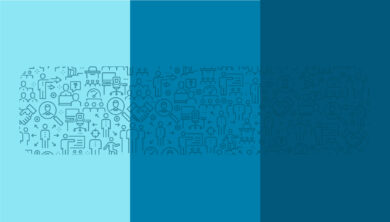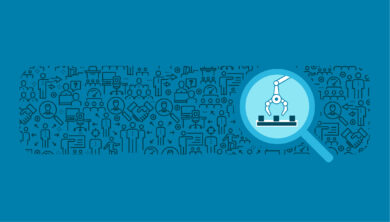Marie Odile-Junker: Recording lessons for humanity
This is one in a series of profiles of the winners of the 2018 Governor General’s Innovation Awards. See all honourees.
For academics in Canada, endangered Aboriginal languages are a critical topic of study, with dozens or even hundreds considered to be dead or dying. The issue of their long-term viability also raises serious questions. Fortunately, Dr. Marie-Odile Junker is one researcher who is tackling many of them. A linguist who is a pioneer in maintaining Aboriginal languages, Junker has created a digital infrastructure for the Algonquian family of languages, including Cree, Innu and Atikamekw.
Her efforts date to when she immigrated to Canada from France in her 20s, and was struck by the fact that it was almost impossible to learn the native languages of her new home.
“The languages of the original people of this land were invisible,” she recalls. “There were no resources for teaching these languages. As a linguist, I wanted to know why.”
“My journey into Participatory Action Research has made me feel extremely grateful to have been a part of something new, and unfolding that seems much greater than myself. I have learned so much from my Indigenous and academic partners, encountered amazing people, surfed on the cusp of a technological revolution and ridden a wave of change where many things are truly intangible, but deeply rewarding.”
After earning her PhD in 1992, she set about finding answers. She joined an interdisciplinary group that uses Participatory Action Research (PAR), a framework where the subjects themselves are considered partners who can define research topics. “It seeks to understand the world by trying to change it, collaboratively,” she explains.
Her goal was to support the maintenance of the language and empower its speakers, she notes, so it made sense to get them more involved.
“Life journeys are often guided by a question and end up being more about the path taken than the answer found,” she remarks, noting that after becoming an associate professor, “I decided I would follow my heart and not worry about promotion anymore. This changed my life.”
First focusing on East Cree, spoken in nine communities in Northern Quebec east of James Bay, Junker started exploring how information technology could help language documentation and preservation, and serve the needs of Cree speakers, students and teachers. She created a website in 2000, and in 2004 co-created an online dictionary. This has been enriched with lessons, and an array of collaborative resources.
The same model was used for Innus in Quebec and Labrador, and in 2005 she launched what would become the Algonquian Linguistic Atlas, which today groups together 52 communities of Aboriginal speakers through their languages and dialects. This has led to the development of a common digital infrastructure for a dozen online dictionaries of Algonquian languages, created in partnership with communities, Aboriginal organizations and colleagues in Canada and the United States.
The goal has been to create open-access data banks, open-source software and integrated tools such as dictionaries, grammar sheets, spelling guides, lessons, exercises, banks of oral stories, texts and a terminology forum. User statistics demonstrate their popularity: in 2016, more than 99,000 words were consulted in the Innu dictionary. The application for the dictionary was downloaded more than 4,600 times since it was launched in 2013, and an East Cree conversation application has been downloaded 3,150 times.
The “conversation” section of the atlas, which contains 21 topics in 16 languages and more than 50 dialects, as well as 19,000 sound files, is used for introductory and revitalization courses at such institutions as native friendship centres.
There have been many challenges, from initial difficulties supporting the syllabic characters found in the languages on the web to the need for endless software and browser updates, improving Internet access and app development, which Junker calls “a jungle.” Documenting Indigenous languages is hampered by a lack of standardization and, especially, a lack of core funding.
She would like to see the atlas and dictionaries maintained and enhanced by Library and Archives Canada or the Language Portal of Canada’s Termium service, one of the largest terminology and linguistic data banks in the world.
Her efforts have brought her to encounter inspiring people, especially women, across Canada’s North. “Every person has something to contribute,” she says.
“There’s a lot of wisdom and knowledge in those languages. They embody a way of seeing the world that is badly needed in this time of ecological catastrophe,” Junker adds. “They are lessons for humanity.”






